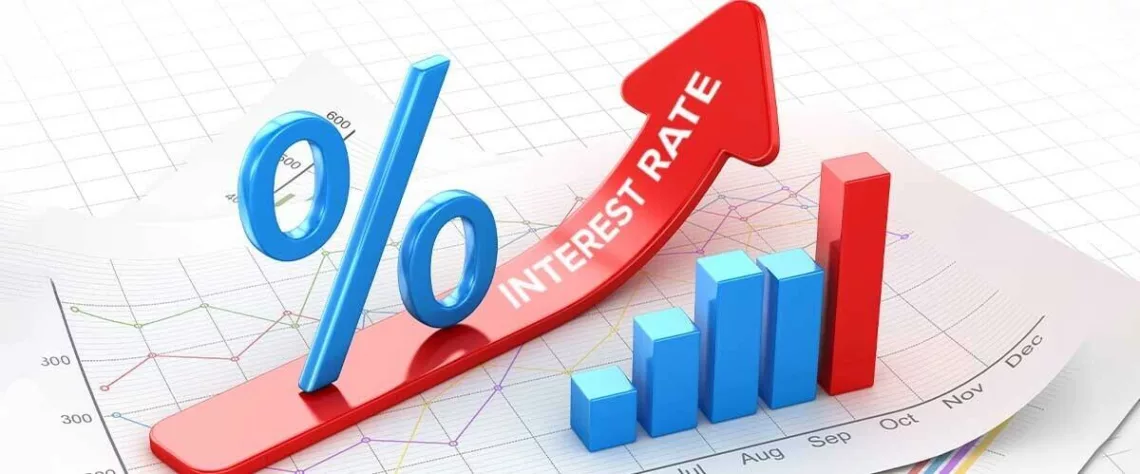Experts have said, the Central Bank of Nigeria(CBN)’s move to hike interest rate by 400bps, putting the MPR figure at 22.75 per cent, is expected to cause increased strain on the economy, especially businesses.
According to a Research Firm, Comercio Partners Limited, the country, despite its resilience, might not have enough room to contain the latest hike in interest rates. The economy, which currently faces a series of fluctuating social and economic challenges, it said, may be pushed further into devastation as an increase in the minimum cost of borrowing in the economy may likely cause a slowdown in the corporate sector, leading to a decline in the stock market.
“Also, with this move, it is expected that the fixed-income space may see a sell-off as an increased interest rate makes old fixed-income securities unattractive, causing a fall in their prices and accompanied by increased yield. It is also expected that new issues both in the public and private spaces will attract higher yields,” it pointed out.
It added that, on the macroeconomic front, despite the increased interest rate likely to cause a slowdown in GDP growth and stock appreciation, the move may exacerbate the unemployment issue confronting the Nigerian economy, saying that “although doubtful, we may see some degree of easing in the inflation figures before the end of the year.”
Meanwhile, the CEO of Centre for the Promotion of Private Enterprise (CPPE), Dr. Muda Yusuf stated that, the outcome of the MPC’s meeting would hurt the real sector of the economy which is already contending with numerous macroeconomic challenges.
He noted that the increase of MPR from 18.75 per cent to 22.5 per cent; and CRR from 32.5 per cent to 45 per cent pose a major risk to the financial intermediation role of banks in the Nigerian economy, saying that the increase would constrain the capacity of banks to support economic growth and investment, especially in the real sector of the economy because the increases are quite significant.
“Although the decision was consistent with the typical policy response of the Central Banks globally, it failed to reckon with domestic peculiarities. The key drivers of Nigeria inflation are largely supply-side variables, and the CBN ways and means financing. Over the last two years, there had been persistent monetary policy tightening, yet there has not been any significant impact on the inflationary pressures. If anything, the general price level had been continuously on the increase.
“We recognize that the primary mandate of the CBN is price stability, but numerous headwinds had posed significant risks to this critical objective. Some of these include the surge in commodity prices and impact on energy cost, disruptive effects of insecurity on agricultural output, and global supply chain disruptions. The surge in ways and means finance also makes the CBN a culprit in the inflation predicament over the past few years. The hike in MPR or CRR would not change these variables,” Yusuf stated.
He explained that, “already, bank lending has been constrained by the high CRR which was until the latest review, 32.5 per cent (many operators in the sector claim that effective CRR is as high as 50 per cent for many banks), the discretionary debits by the apex bank.
“The credit situation in the economy is already very tight, with lending rate ranging between 25 per cent to 30 per cent. The Nigerian banks are yet to live up to their financial intermediation role because of these constraining factors.
“The Nigerian economy is not a credit driven economy, unlike what obtains in many advanced economies which have much higher levels of financial inclusion, robust consumer credit framework and strong correlation between interest rate and aggregate demand. The level of financial inclusion in the Nigerian economy is still quite low, access to credit by households and MSMEs is still very challenging, and the informal sector accounts for close to 50 per cent of the economy.”
He noted that “the new dramatic increase in MPR to 22.5 per cent hike means that the cost of credit to the few private sector that have exposure to bank credits will increase which will impact their operating costs, prices of their products and profit margins, amidst very challenging operating conditions. The equities market may also be adversely impacted by the hike.”
To reverse the spiraling inflation, CPPE seek government need to address the security concerns causing disruption to agricultural activities; sustaining reforms in the foreign exchange market; address forex liquidity issues; fix the structural problems to boost productivity and competitiveness of domestic firms; among others.





